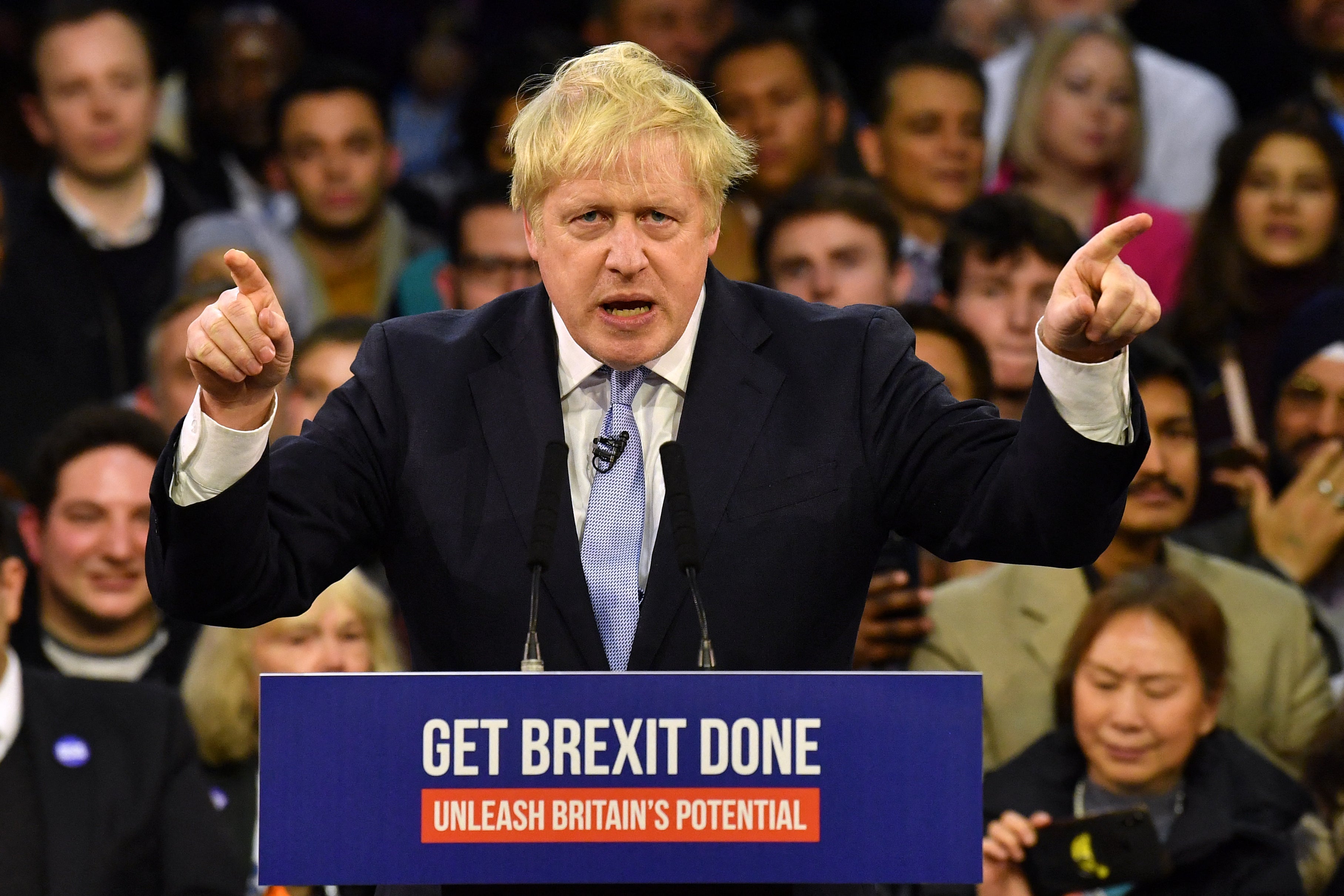Leaving the EU would reverse our economic fortunes, Brits were told a mere nine years ago – now the US president is raving about a new era for America as he begins waging trade wars. It’s not hard to see where this is going, writes Chris Blackhurst
https://www.independent.co.uk/voices/trump-canada-tariffs-brexit-b2710928.html

Canadian PM Justin Trudeau hits out at Trump’s ‘dumb’ tariffs in direct message to president
One of the few jarring notes in Donald Trump’s imperious address to Congress was the reference to tariffs and their impact. “There’ll be a little disturbance, but we’re OK with that. It won’t be much.” Then he moved quickly on, laying out his vision for the “golden age of America” and declaring that “the American dream is unstoppable”.
For watchers in the UK, the speech had a familiar ring. Under Boris Johnson, we became used to brazen boosterism, outlandish claims, and promises that were not delivered. None more so than the ones that were made about Brexit. Exiting the EU would presage an economic rebirth, clearing the path for an independent, free, booming Britain. That has not happened.
The Brexiteers will point to the way in which Keir Starmer is acting as a bridge between the US and Europe, how he’s leading Europe rather than being led, and Britain’s avoidance of the worst of Trump’s levies, as some sort of Brexit dividend. Really? If a global trade war erupts – and the signs are that it will – then the UK will not escape. We will be just as much affected as everyone else.
As for the idea (also posited by the anti-EU brigade) that the EU powerhouse of Germany has slumped, and other bloc members are also in the doldrums, and the UK has not been dragged down with them – it’s not as if the domestic economy is exactly firing on all cylinders at present. The major trade deals we were assured would materialise have simply not transpired. One might, with the US, but where Trump is concerned, the adage “many a slip between cup and lip” has never been more apposite.
To borrow from the US president, what was meant to herald a golden age for Britain has so far failed. Worse, it weakened the economy, making trade and the transfer of skilled employees between the UK and EU both costly and painfully onerous. This is not a Remainer argument – any business that once relied on moving goods and people to and from the EU will vouch for that.
It came, too, at a time of added international uncertainty and fragility. Covid did not assist, granted, but the pandemic only served to highlight further the interconnected nature of the world’s markets. Countries, no matter how powerful, need friends, not enemies.
Could tariffs be a step too far – one that was unnecessary? Could they be Trump’s Brexit? Certainly, analysts are speaking in terms that could easily apply to the post-EU fallout. They’re worrying about the danger of a “Trumpcession” prompted by retaliatory measures from those nations that are hardest hit by his hiked customs charges and fearful of price rises on US imports. This is against a backdrop of large-scale and sudden unemployment, caused by Elon Musk’s purging of federal officialdom.
In one crucial sense, the US is very different from Britain. It’s a much more closed economy, with trade contributing 24 per cent of its GDP in 2023 versus Britain’s 64 per cent. As time goes on, this could illustrate a fundamental miscalculation by the Brexit proponents: unlike the US, say, Britain is not remotely self-reliant; it is a small island that does not grow and produce its own, but is entirely dependent on trading with others. Every little helps, as Tesco (which knows a thing or two about bringing in items from overseas) likes to say – and in that context, closing out the EU was an act of folly.
It’s Trump’s calculation, but in reverse. Britain had a free trade area on its doorstep, one with 450 million inhabitants. He has the same, except his is smaller, with 340 million citizens. The US, he reckons, can fend for itself; US companies will step up and supply consumers with what they need; foreign brands will dwindle in number; and America will prosper.

That may be so, but it will not be achieved overnight. In the meantime, US shoppers will be hit with inflation, and those US firms that count on exports sales will suffer. That cheery buoyancy that Trump so revels in could soon disappear. In its place could appear uncertainty and hesitancy, over investing and spending.
Far from clamouring to join in with the Trumpian mood of optimism and celebration, businesses might prefer to apply the brakes. His spend, spend, spend euphoria could easily be replaced by save, save, save – at least until the horizon clears, and this is a president whose administration does not do clarity. Nothing is definite in Trumpland until it actually passes.
Trump believes he is being forthright and transparent on the new fees and their effect, but the US public and its businesses are not waiting: they are making up their own minds. One finding that should urgently detain Trump is that last month, US consumer confidence recorded its steepest fall since August 2021.
Another indicator that ought to provide pause is the dollar. Fears of a potential US downturn are causing it to decline. If Trump is to be believed, America is a safe harbour that can weather the storm his new charging structure will unleash. In which case, the greenback would be climbing as investors, speculators, sought sanctuary. That is not the case. Even the pound has been benefiting, reaching its highest level against the dollar since November, when – mention it to Trump at your peril – “Sleepy” Joe Biden was in charge.
A key aspect of Trump’s appeal, one he reiterated time and again on the campaign trail, was hefty tax cuts. Vote for him, people were told, and bounty will pour from the sky, Americans will be better off, all will be “just great”. But lower taxes must be paid for, and there is no evidence of where that money is going to come from.

Leave a Reply